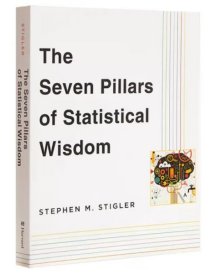
不是激情的奴隶 情感和选择 罗伯特 所罗门 英文原版 Not Passion s Slave Emotions and Choice
¥ 238 7.4折 ¥ 322 九五品
仅1件
广东广州
认证卖家担保交易快速发货售后保障
作者Robert C Solomon
出版社Oxford University
ISBN9780195179781
出版时间2006-08
印刷时间2006-08
印数1千册
装帧平装
开本32开
纸张轻型纸
页数259页
字数1千字
定价322元
上书时间2024-11-29
- 最新上架
商品详情
- 品相描述:九五品
- 商品描述
-
基本信息
Format Paperback | 272 pages
Dimensions 152 x 227 x 15mm | 439g
Publication date 17 May 2007
Publisher Oxford University Press Inc
Language English
ISBN10 0195179781
ISBN13 9780195179781
页面参数仅供参考,具体以实物为准
书籍简介
从某种意义上说,我们对自己的情绪负有责任,这一观点是罗伯特·所罗门近三十年来提出的。在这里,在一个单卷中,他追溯了情绪理论的发展,并详细阐述了它。两个主题贯穿他的作品:第yi是提出了情绪的“认知”理论,其中情绪主要被解释为评价性的判断。第二种观点提出了一种“存在主义”的观点,在这种观点中,他捍卫了这样一种观点,即我们要对自己的情感负责。事实上,有时甚至可以说是我们“选择”了它们。虽然第yi个主张在文学作品中获得了越来越多的认同,但他关于情感责任的主张继续遭遇相当大的阻力和误解。对进化生物学和神经学的新强调(错误地)强化了流行的偏见,即情绪“发生”在我们身上,完全不受我们控制。
这本书也是所罗门(1)作为一个思想家自己发展的智力回忆录。写于1980年代的论文阐述了情感的“意向性”主题和情感是“判断”的主张;在这一时期,他也越来越关注情感是如何在各种文化中变化和被认同的。在20世纪90年代,他的兴趣发展到考虑情绪的社会和政治作用以及关于情绪的理论。zui后一节介绍了他目前对激情的表面“被动性”的哲学立场。尽管他自己对自己早期的工作进行了批判性的评估,但他仍然认为,归根结底,我们要对自己的情绪和生活质量负责。
The idea that we are in some significant sense responsible for our emotions is an idea that Robert Solomon has developed for almost three decades. Here, in a single volume, he traces the development of this theory of emotions and elaborate it in detail. Two themes run through his work: the first presents a "cognitive" theory of emotions in which emotions are construed primarily as evaluative judgments. The second proposes an "existentialist" perspective in which he defends the idea that, as we are responsible for our emotions. Indeed, sometimes it even makes sense to say that we "choose" them. While the first claim has gained increasing currency in the literature, his claim about responsibility for emotions has continued to meet with considerable resistance and misinterpretation. The new emphasis on evolutionary biology and neurology has (mistakenly) reinforced the popular prejudice that emotions "happen" to us and are entirely beyond our control.
This volume is also a kind of intellectual memoir of Solomon(1)s own development as a thinker. The essays written in the 1980s elaborate the themes of the "intentionality" of emotion and the claim that emotions are "judgments"; in this period, he is also increasingly preoccupied with how emotions vary and are identified in a variety of cultures. In the 1990's, his interests evolve to consider the social and political role of emotions and theories about emotion. The final section presents his current philosophical position on the seeming "passivity" of the passions. Despite his own critical assessment of his earlier work, he continues to argue that, in the final analysis, we are responsible for our emotions and existential quality of our lives.
作者简介
罗伯特•所罗门(1942—2007),世界知名哲学家和哲学教师,尤精于尼采、存在主义哲学和情感理论的研究,特别擅长用日常生活中的例子来解释大哲学家复杂的思想,同时又不失其严格性。他生前是美国得克萨斯大学奥斯汀分校的“Quincy Lee百年纪念” 讲席教授和杰出授课教授。他在密歇根大学获得博士学位,曾在普林斯顿大学、匹兹堡大学和加州大学执教。他出版过四十多本著作。
Robert C. Solomon (September 14, 1942 – January 2, 2007) was a philosopher and business ethicist, notable author, and "Distinguished Teaching Professor of Business and Philosophy" at the University of Texas at Austin, where he held a named chair and taught for more than 30 years, authoring The Passions: Emotions and the Meaning of Life (1976) and more than 45 other books and editions. Critical of the narrow focus of Anglo-American analytic philosophy, which he thought denied human nature and abdicated the important questions of life, he instead wrote analytically in response to the continental discourses of phenomenology and existentialism, on sex and love, and on business ethics, and on other topics to which he brought an Aristotelian perspective on virtue ethics. He also wrote A Short History of Philosophy and others with his wife, Professor Kathleen Higgins.
相关推荐
— 没有更多了 —















以下为对购买帮助不大的评价